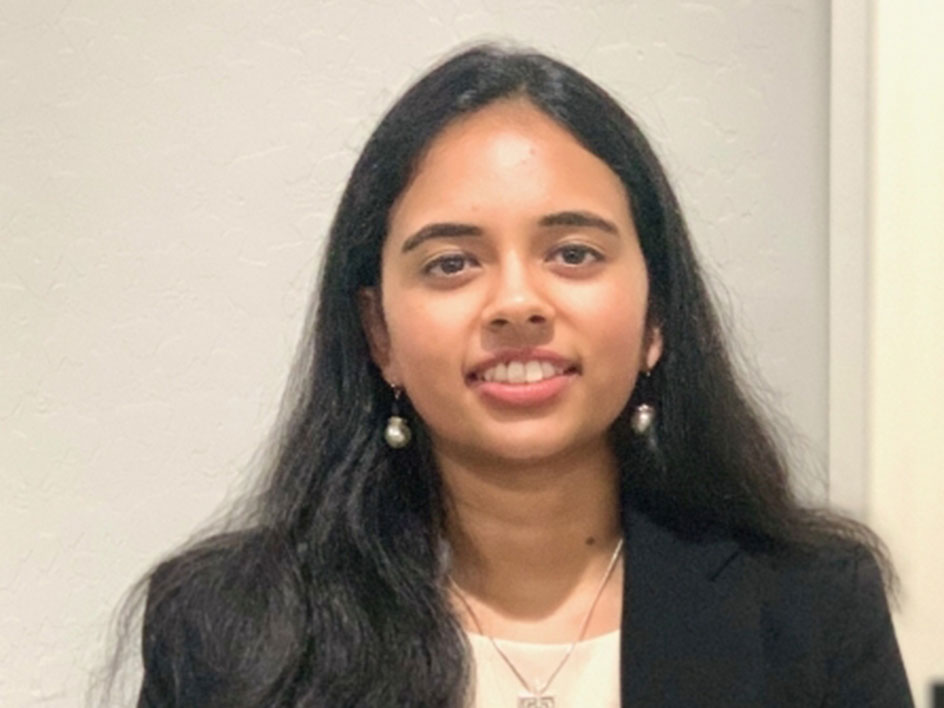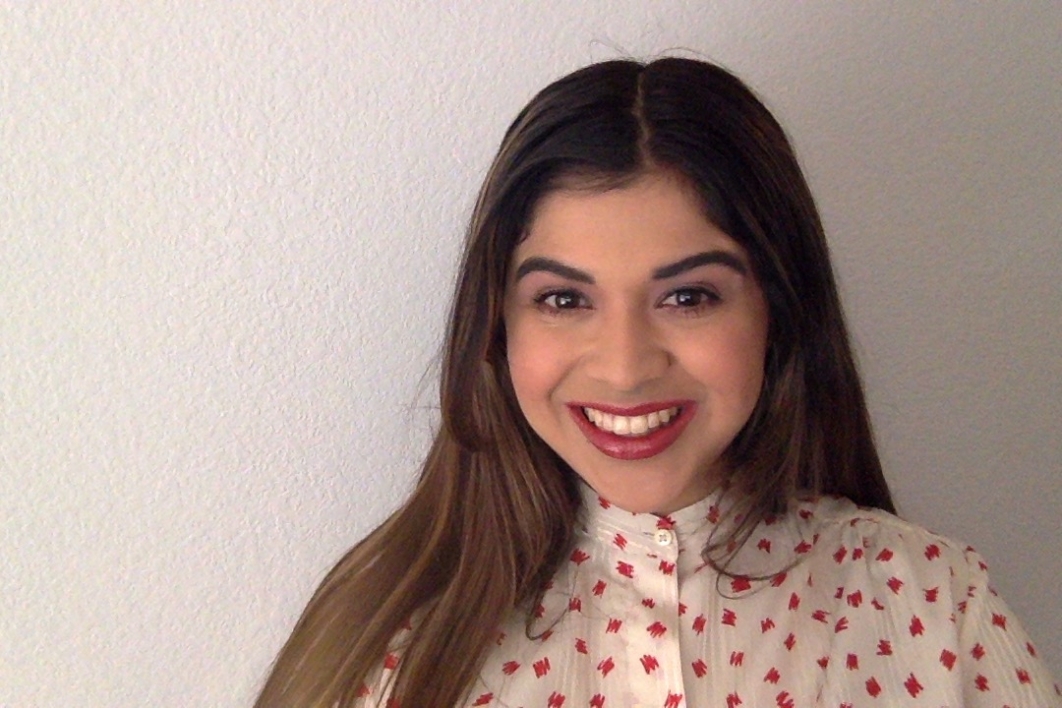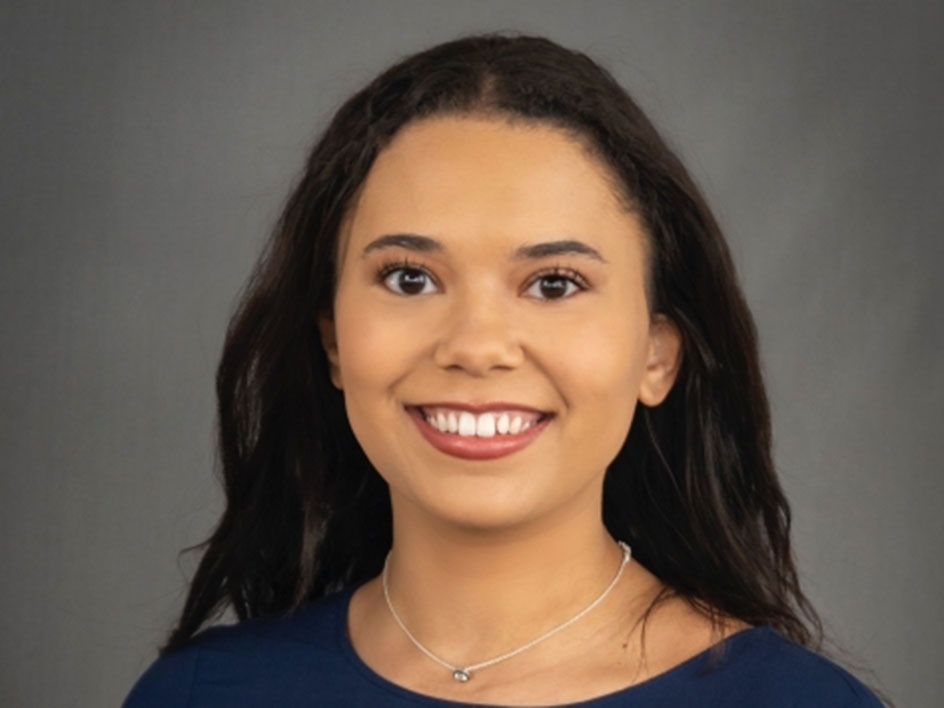Certificate program offers courses on injustice, incivility, political disengagement

Veronica Gonzales, an ASU Barrett, The Honors College junior double-majoring in political science and English, is a member of the Justice Equity Honors Network, a collaboration between Barrett Honors College at ASU and Macaulay Honors College at City University of New York.
Veronica Gonzales, a junior in Barrett, The Honors College at Arizona State University, is no stranger to difficult conversations about race and gender inequality.
The junior double-majoring in political science and English has for years talked with her mother and sister about the challenges and discrimination they have faced.
“These injustices and inequalities were first brought to my attention when I was younger through my older sister and my mom, who both showed me the reality of being a woman of color. I witnessed discrimination committed against them, and their experiences and who they are as people fostered a sense of wanting to change the world, or at least make a small difference in it, in me,” Gonzales said.
That’s why when Gonzales heard about the Justice Equity Honors Network, a collaboration between Barrett, The Honors College and Macaulay Honors College at City University of New York, she wanted to be involved.
The network was co-founded by Olga Idriss Davis, professor and associate dean of the ASU honors college at the Downtown Phoenix campus, and Joseph Ugoretz, senior associate dean and chief academic officer at Macaulay Honors College.
The network is a certificate program featuring multidisciplinary honors courses and activities focused on issues of injustice, incivility and political disengagement.
The program began this fall with an initial cohort of students, who are called JEHN Fellows, from both honors colleges. Weekly online classes are co-taught by Barrett Honors Faculty Fellow Rachel Fedock and Macaulay Honors College Professor Zohra Saed.
A summer conference that will bring JEHN Fellows from Arizona and New York together in-person is in the planning stages. The program may be expanded to include other honors colleges in the future.
Davis said the idea for the Justice Equity Honors Network emanated from events and crises of 2020, including a global pandemic, outrage over police violence and systemic racism, the long-standing assaults against Black lives and Black culture, political polarization and increasing economic disparity, environmental destruction and a dangerous degradation of civic norms.
“We felt we needed something academically to respond to these events focusing on values around American democratic society, justice, equality and equity,” she said.
“We wanted to create an honors network where young, high-achieving, future leaders see the value of collaboration with a consciousness that recognizes their responsibility of transforming our fraught world. Having a network, a community like this, is unique to an honors academic experience. JEHN offers a vision of possibilities beyond our imagination.”
“It’s really difficult to have conversations about such things as inequities, injustices and incivility, but these are conversations we need to have. We need to inform students, ‘Here are things that former generations didn’t clean up before you arrived. We need to give you the history so you can now pay it forward, teach others and create change,’” Davis added.
Ugoretz said the network aims to address the divisiveness that is plaguing the country.
“We are a fractured country that is feeling so divided. Bringing talented young people together across these divides is a way to heal that brokenness and inform the decisions they make in the future,” he said.
What’s unique about the network, according to Ugoretz, is “the fact that this is specifically for honors students, and specifically a network."
"Those are the things that distinguish this program from existing ethnic studies or social justice programs," he said "This is a program for students who have strong academic skills, and because of that they feel a strong commitment to living up to their responsibilities and using their skills to heal their world. And they feel a strong desire to connect, in a network, with other students like them across the country.”
Gonzales said she has learned about various cultures and social issues that impact marginalized groups, such as women and the Black, Latino and Indigenous communities.
“I think what’s so important and great about JEHN is how we’re learning about these parts of history that we might not have ever gotten to discuss at all. Along those lines, I’ve also learned how to properly have these types of conversations and how to become comfortable with being uncomfortable. It’s only through discussing such issues that we can begin creating change,” she said.
Sierra Santiago, a sophomore in Macaulay Honors College majoring in political science with a minor in Africana and Puerto Rican/Latino studies, said through the network she has learned how to critically analyze global history and gained knowledge of systemic oppression in the areas of education and criminal justice.
“Although the U.S. education system generally covers ‘important’ events in this nation’s history, many stories of colonization and subjection are still left unsaid,” she explained.
“Having challenging discussions and experiences is crucial to developing a well-rounded and comprehensive worldview. Learning how to reclaim and reframe the ‘American’ narrative towards new multicultural perspectives and in characterizing public issues is essential to protecting all through equitable legislation,” she said.
Anusha Natajaran
Anusha Natajaran, a Barrett, The Honors College junior majoring in sociology and history, is using her experience to inform her honors thesis, which focuses on how Arizona’s history is portrayed in textbooks and the lack of history and culture pertaining to communities of color.
“I am very interested in cultural education as many people who identify as a person of color have been left out in our curriculum, such as our textbooks or histories,” she said.
Natajaran said through the network she learned about Arizona’s role in removing Native American youth from their homes and sending them to residential schools that stripped them of their culture.
Alejandra Maya
“Arizona is one of the states that had residential schools, and the history behind them is dark and brutal. JEHN is filling that gap that we missed in our social studies curriculum,” she said.
Alejandra Maya, a senior in Barrett, The Honors College majoring in political science, said students should not have to wait until college to learn about issues of justice and equity.
“This is a huge issue because not every person decides to pursue higher education, which is OK. But it is not OK that current and future generations are not exposed to these challenging topics. These topics are real-life experiences that every person in the world is exposed to. It is important to educate and make students aware of the environment we live in,” she said, adding that that is what the network does.
Elisa Thomas
“JEHN has deepened my knowledge on systemic issues that we face as a nation and as a collective whole," said Elisa Thomas, a Barrett, The Honors College junior majoring in sociology with minors in justice studies and political science.
"I appreciate the depth and variety of sources we review: historical texts, modern-day news stories, documentaries, YouTube videos and poems. I think this breadth of knowledge is incredibly valuable to nourish strong discourse between students.”
Gabrielle Erves, a sophomore computer science major in Macaulay Honors College, said she appreciates “having a safe space to discuss issues.”
“I feel this is very important because the first way to heal these issues is to have conversations about them that are productive and that help to move the ball forward and promote change.”
The Justice Equity Honors Network is seeking a new cohort of honors students for the academic year 2022–23. The application is now open, and the deadline to apply is Dec. 20.
More Law, journalism and politics
Can elections results be counted quickly yet reliably?
Election results that are released as quickly as the public demands but are reliable enough to earn wide acceptance may not…
Spring break trip to Hawaiʻi provides insight into Indigenous law
A group of Arizona State University law students spent a week in Hawaiʻi for spring break. And while they did take in some of the…

LA journalists and officials gather to connect and salute fire coverage
Recognition of Los Angeles-area media coverage of the region’s January wildfires was the primary message as hundreds gathered at…




